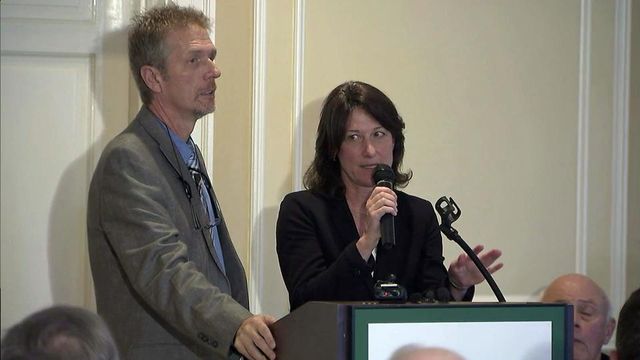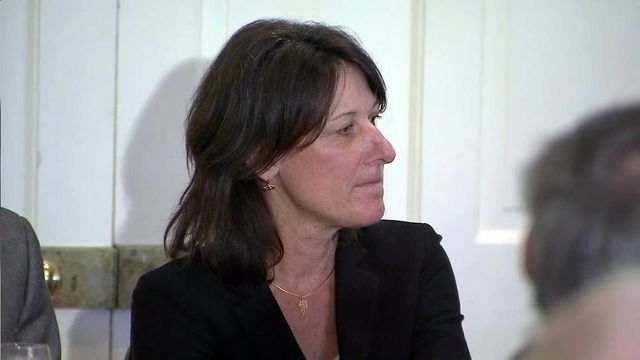Willingham: Never wanted to be UNC whistleblower
The former academic adviser at UNC-Chapel Hill who publicly criticized the literacy of the school's athletes amid investigations into academic fraud said Wednesday that she never wanted to become a whistleblower and still dislikes the tag.
Posted — UpdatedYet, Mary Willingham told members of the Durham Sports Club, she plans to continue working to clean up collegiate athletics, noting the NCAA has little incentive to reform the "corrupt system."
"We can fix it. We can do better than this, and we can still enjoy game day," said Willingham, who left UNC-Chapel Hill last spring.
Former federal prosecutor Kenneth Wainstein released a 131-page report last month detailing his investigation into fraudulent grades and coursework at the university. He found that academic counselors steered student-athletes to "irregular" classes within UNC-Chapel Hill's African and Afro-American Studies department that had no faculty involvement and never met. The fraud went on for 18 years, ending in 2011, and involved 169 athletes whose grades in such classes kept them eligible to compete in athletics.
Willingham said numerous people across the university knew about the sham classes, and "lots of people still aren't telling the truth." She recounted the struggles some of the student-athletes she worked with, saying they were doing work on the same level of her own elementary school- and middle school-age children.
"It's a corrupt system because many of these young men are passed through the system without really being given what they're promised, which is a real education," she said.
Universities have lowered their admissions standards for athletes, and the NCAA allows it to keep the revenue-producing sports going, she said.
"The front door is the problem, and no one is talking about it," she said. "The NCAA has lost its ability to be a regulatory body because this system has gotten so big and there is so much money involved."
Willingham said she complained to no avail to UNC-Chapel Hill athletics and admissions officials for several years about the need to get the athletes up to college-level literacy. Only after the NCAA began looking into questionable benefits given to Tar Heels football players and their relationships with sports agents did she speak out publicly, she said.
"My kids, my family, we were Tar Heels. Who wants to be the one to be the tattletale?" she said, noting that she still would prefer to be known as "Mary from the south side of Chicago" rather than a whistleblower.
After she released her research that found some UNC-Chapel Hill athletes had poor literacy levels, university officials hired outside academics to discredit her findings. She defended her data on Wednesday, and Jay Smith, a history professor at UNC-Chapel Hill, said there was "something fishy" with the way university officials handled the dispute.
Willingham and Smith have co-authored "Cheating: The UNC Scandal, the Education of Athletes and the Future of Big Time College Sports" to detail the problems they have found with collegiate athletics. The book is scheduled to be released in March.
"We know that it's not just a UNC problem. We know that it happens across the country," Willingham said.
Smith said universities need to either raise their admission standards again or provide the needed remediation for student-athletes so they can succeed in a college classroom. Academic advisers in athletic departments focus solely on maintaining student-athletes' eligibility, he said, and not on helping them find classes that will improve their education.
That philosophy led to the no-show classes at UNC-Chapel Hill, Smith said.
"(The advisers) found the friendly faculty and the curricular soft spots that would enable those athletes get over the hurdles" posed by the required core classes, he said.
• Credits
Copyright 2024 by Capitol Broadcasting Company. All rights reserved. This material may not be published, broadcast, rewritten or redistributed.






